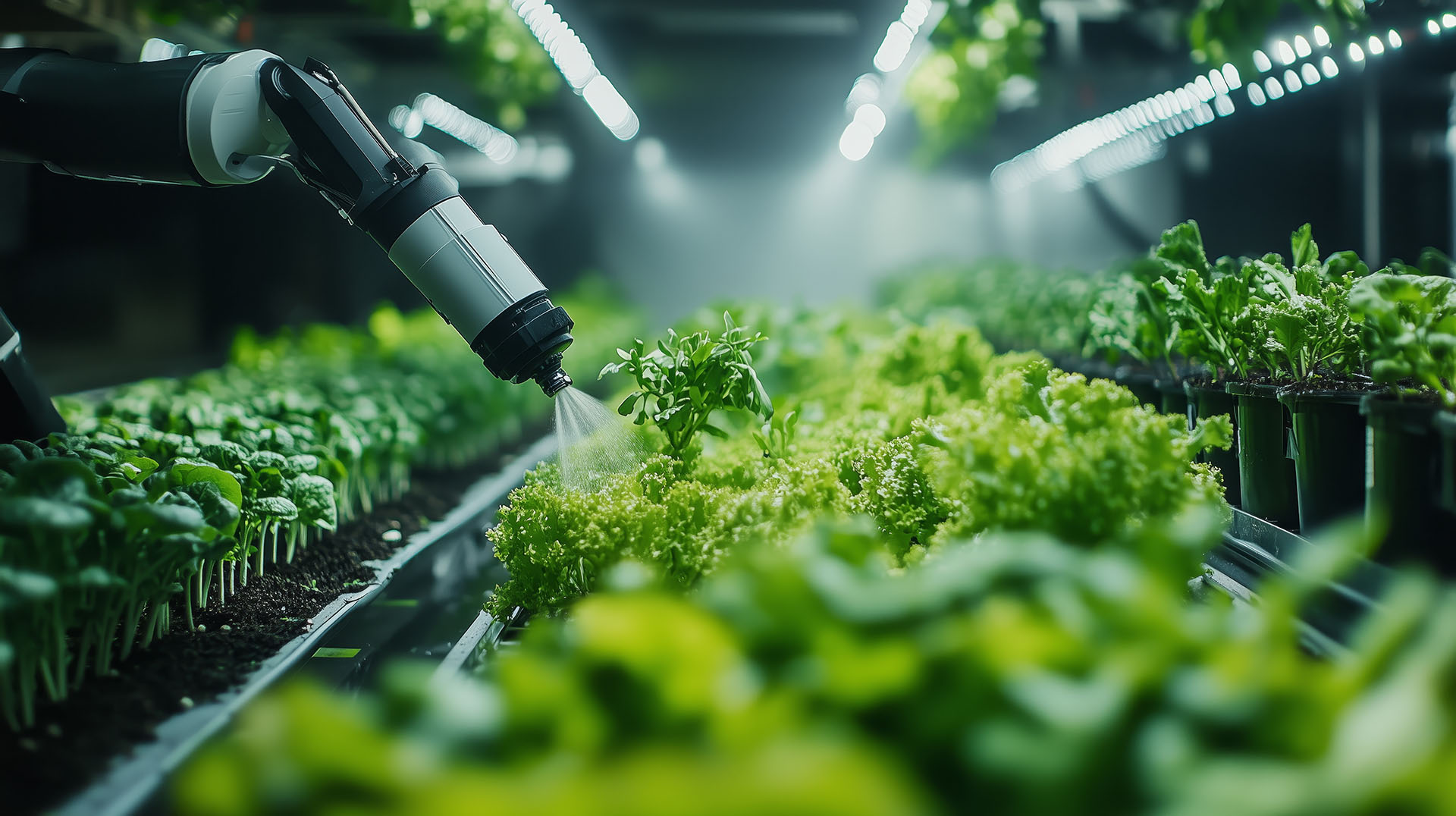The food industry is adopting advanced technologies such as Artificial Intelligence (AI) and Machine Learning (ML) to transform its production, logistics, and storage processes. The implementation of AI in the food industry allows for the optimization of not only production but also inventory management and distribution, improving operational efficiency, reducing costs, and ensuring quality.

Improvement of Warehouse Logistics
Warehouse logistics is an essential component in the food industry, where efficient inventory and distribution management is key to ensuring product freshness and availability. AI and ML optimize the organization and flow of products within warehouses, improving inventory management accuracy and facilitating traceability. Intelligent systems can predict demand and automatically adjust stock levels, preventing both shortages and overstocking, thus reducing operational costs.
Regarding space management in warehouses, ML algorithms analyze real-time data on storage and product movement, maximizing the efficiency of available space and optimizing worker routes to minimize travel time and increase order preparation speed.
Optimization of Distribution
Machine Learning also plays a fundamental role in managing distribution logistics. By utilizing real-time data on traffic, weather conditions, and delivery routes, ML can predict demand and plan more efficient distribution routes. This is especially important in the food industry, where products have a limited shelf life and efficient distribution is crucial to ensuring they reach consumers in optimal condition.
Quality Control and Traceability
Within factories and warehouses, AI also handles quality control, ensuring that every batch meets the highest standards. Furthermore, the use of Blockchain provides complete traceability of products, from raw materials to the final product. Each stage of the process is immutably recorded, ensuring not only food safety but also compliance with regulations and enhancing consumer trust.
Practical Cases
Some major companies in the food sector are implementing technologies like AI and ML to optimize not only their production processes but also warehouse and distribution logistics. These companies use intelligent systems to anticipate demand, manage inventories more efficiently, and optimize logistical routes, allowing them to reduce costs and improve service quality.
Conclusion
The integration of AI and Machine Learning in food product factories is revolutionizing production, warehouse management, and distribution. These technologies enable greater operational efficiency, better quality control, inventory optimization, and traceability, which are essential in a sector where product safety and freshness are crucial. By implementing these intelligent solutions, food product factories can reduce costs, improve competitiveness, and offer better service to their consumers in an increasingly demanding global market.
At WonderBits, we are here to support businesses at any stage of the digitalization process. If you want to know how we can help you optimize your processes and boost your business, don’t hesitate to reach out to us.